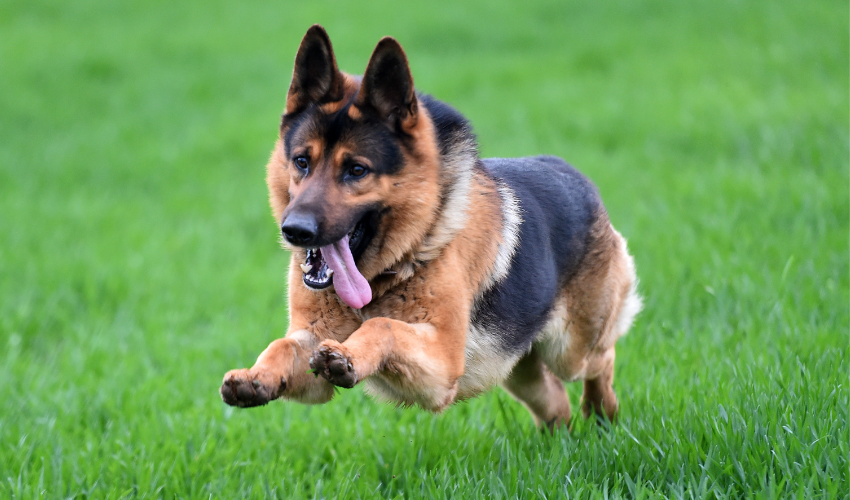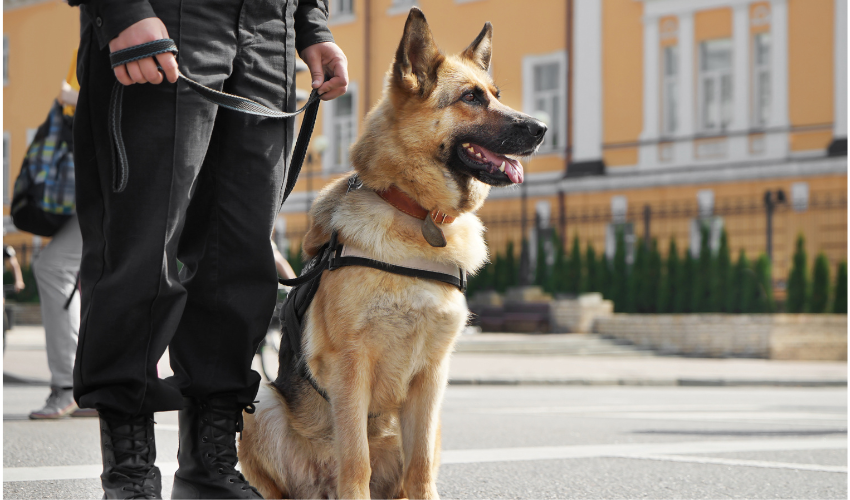German Shepherds are one of the most popular dog breeds in the world. Known for their intelligence, loyalty, and courage, these dogs make excellent companions, working dogs, and family pets. They are highly trainable and adaptable, but they require proper care and attention to thrive.
In this article, we’ll take a closer look at German Shepherd behavior and care. We’ll cover everything from their temperament and personality traits to grooming, exercise, and nutrition. We’ll also provide some helpful tips for training and socializing your German Shepherd.
So, let’s dive in and explore the world of the German Shepherd.
German Shepherd Behavior and Personality Traits:
- Intelligent and Trainable: German Shepherds are highly intelligent and trainable dogs. They have a strong desire to please their owners and are quick learners.
- Loyal and Protective: German Shepherds are known for their loyalty and protective nature. They are instinctively protective of their owners and their property.
- Active and Energetic: German Shepherds are active and energetic dogs that require plenty of exercise and mental stimulation to stay healthy and happy.
- Independent: German Shepherds can be independent and stubborn at times. They require firm and consistent training to prevent unwanted behavior.
- Reserved with Strangers: German Shepherds can be reserved with strangers and require early socialization to prevent aggression towards unfamiliar people and animals.
German Shepherd Care:

- Grooming: German Shepherds have a thick double coat that requires regular grooming to keep it healthy and shiny. They should be brushed at least once a week and bathed as needed.
- Exercise: German Shepherds require plenty of exercise to stay healthy and happy. They should be walked or run for at least 30-60 minutes every day.
- Nutrition: German Shepherds require a well-balanced diet that is high in protein and low in fat. They should be fed high-quality dog food that is appropriate for their age, size, and activity level.
- Training: German Shepherds require consistent and positive training to prevent unwanted behavior and develop good manners. They should be trained using positive reinforcement techniques.
- Socialization: German Shepherds require early and ongoing socialization to prevent aggression towards unfamiliar people and animals. They should be exposed to a variety of situations, people, and animals from a young age.
Training Tips for German Shepherds:

- Start Early: Begin training your German Shepherd as early as possible to prevent unwanted behavior and develop good manners.
- Be Consistent: Use consistent commands and rewards to reinforce good behavior and discourage unwanted behavior.
- Use Positive Reinforcement: Reward good behavior with treats, praise, and affection. Avoid punishment and negative reinforcement.
- Socialize Your Dog: Expose your German Shepherd to a variety of situations, people, and animals to prevent aggression and fear.
- Practice Obedience Training: Teach your German Shepherd basic obedience commands, such as sit, stay, come, and heel, to ensure good behavior in any situation.
FAQs:
How long do German Shepherds live?
German Shepherds typically live between 10-13 years.
Are German Shepherds good with kids?
Yes, German Shepherds can be great family pets and are often very protective of children.
Do German Shepherds shed a lot?
Yes, German Shepherds have a thick double coat that sheds heavily twice a year.
Are German Shepherds good guard dogs?
Yes, German Shepherds are often used as guard dogs due to their protective nature and loyalty to their owners.
Do German Shepherds require a lot of exercise?
Yes, German Shepherds are active and energetic dogs that require plenty of exercise to stay healthy and happy. They should be walked or run for at least 30-60 minutes every day.
Conclusion:
German Shepherds are intelligent, loyal, and protective dogs that make excellent companions, working dogs, and family pets. They require proper care and attention to thrive, including grooming, exercise, nutrition, training, and socialization. By understanding their behavior and providing them with the care they need, you can enjoy a long and happy life with your German Shepherd.






















